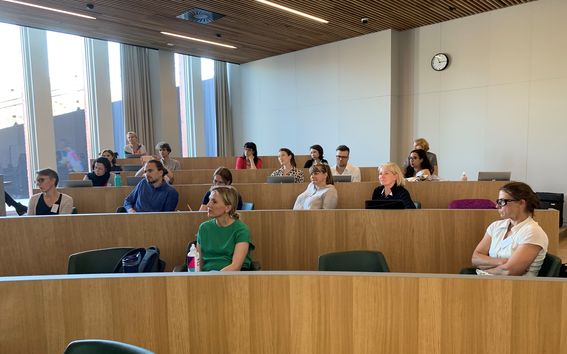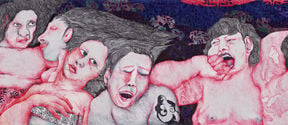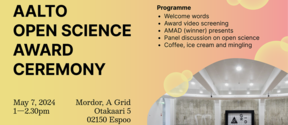High energy works in an entrepreneurial community, but peace works in the funeral home

Have you stopped to consider why vastly different work environments, such as a funeral home, an advertising agency, university, or even how two companies in the same industry might have a different atmosphere? The reason is not always so apparent.
Organisations and institutions often strive to create a working atmosphere that would seem most appropriate for the situation, for example by providing different work-space solutions, room fragrances or even by facilitating and steering group activities in a specific direction.
Unlike emotions, affects are hard to express with words, but examples of affects are anxiety, the raising of hairs, or even an enormous burst of enthusiasm that makes someone feel like they are flying. Organisational researchers are interested in affects, as they can make people work better together on a task but can just as easily be counter-productive, and ensure that the customers don’t return.
A fresh research trend
Affect Research is a relatively new area of research that offers exciting ways to explore how affects are created and how organisations can influence the affects experienced by their employees. However, while organisational researchers, psychologists, and cultural researchers are all interested in affect research, they each look at it from a slightly different perspective.
A recent international workshop organised by the Aalto University School of Business brought together researchers in the field to reflect on how affects influence the renewal of organisations. The organisers of the workshop, Senior University Lecturer Saija Katila and Doctoral Student Ari Kuismi from the Department of Management have previously studied Helsinki Think Company, a university-driven entrepreneurial initiative, to see how its members could be more enthusiastic about entrepreneurship and entrepreneurial activity.
“According to our research, all organisational practices have a certain normative affective order which determines the rhythm of work practices, what kind of affective energy characteristics there are, and the physical presence it requires from the workers. As one example, the 4UNI accelerator of Helsinki Think Company appreciates fast-paced development and zealous energetic and physical presence”, says Saija Katila.
Whistleblowers in the finance sector
Professor Kate Kenny from the J.E. Cairnes School of Business in Ireland has been analysing and using affect research on financial sector whistleblowers, i.e. employees who have reported abuse in the work community. While abuse is considered unacceptable, whistleblowers are often subject to hostile treatment.
“Whistleblowers are often treated as pariahs, with entire work communities involved in their isolation. Affect theory sheds light on this dynamic in financial services by showing how whistleblowing can be seen as a radical social act so, from that perspective, we are collectively compelled to take responsibility for the suffering of those who expose wrongdoing” Professor Kenny says.
In turn, Professor Silvia Gheradi of the University of Trento has promoted the idea of affective ethnography, in which the researcher's own body and senses are part of the research tools. “Affective ethnography is a style of research that acknowledges that people, texts, objects, and language are all entangled in complex ways and that they should be interpreted through their intra-actions as data in motion”, Professor Gheradi explains.
Endlessly tired in a dream job
Senior Researcher Mona Mannevuo from the Centre for Parliamentary Studies at the University of Turku has applied affect theory to multidisciplinary cultural and culturohistorical research which requires researchers to be open-minded and willing to cross disciplinary boundaries. According to Mona Mannevuo, affect theory works well when the researcher aims to approach his or her research subject by emphasising diversity and interpretation.
Mannevuo adds, “A great, new example of a multidimensional affective atmosphere is the coexistence of exhaustion speech and the #ilovemyjob phenomena. Affect theory offers one tool to look at why someone can be in their dream job and endlessly exhausted at the same time. Affect theory also provides a tool to look at how contemporary stories - especially those circulating in social media - affect individuals' behaviour”.
Additional Information:
Saija Katila
Senior university lecturer
Aalto University School of Business
Department of Management Studies
+358 50 562 8770
[email protected]
Link to Professor Kate Kenny's recent book:
http://www.hup.harvard.edu/catalog.php?isbn=9780674975798
- Published:
- Updated:
Read more news

Aalto ARTS alum Vidha Samya’s artwork featured at the Venice Biennale 2024
The Pavilion of Finland presents ‘The pleasures we choose’ at the 60th International Art Exhibition – La Biennale di Venezia until 24 November 2024.
IoT Forge donates EUR 1 million to the School of Engineering
The donation will be used for research and education on the Industrial Internet and digital twins.
Join us for the first Aalto Open Science Award Ceremony
All Aaltonians are welcome – no registration required!